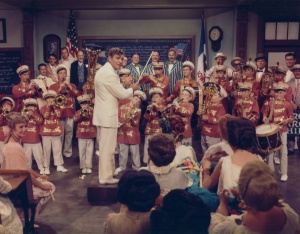No respected classical music institution would ask its executive director to conduct the orchestra. There might be a few rare instances where executive leaders have the necessary talent and expertise, but in most cases, the executive director has not been trained to be a professional musician, has not earned enough professional experience to lead an orchestra, and has not developed the professional acumen necessary to occupy such a position.
Oddly, however, classical music institutions regularly ask their executive leaders to make marketing decisions. There might be a few rare instances where chief executives have the necessary talent and expertise, but in most cases, the executive director has not been trained to be a professional marketer, has not earned enough professional marketing experience to lead a marketing team, and has not developed the professional acumen necessary to be the arbiter of an institution’s life or death marketing choices.
Marketing is a professional  discipline that’s complex and difficult to master. Like conducting, it requires years of study, extensive practice, broad experience across multiple styles and genres and in-depth knowledge of theory. Those who rise to the top of the marketing profession tend to possess unique talents and insights along with extensive track records that support their elevated positions. And those who achieve expert status have accumulated, or will insist on accumulating, vast amounts of objective, external evidence to support their opinions. True experts will readily admit that in marketing, as in conducting, what matters most is not what you think, but rather what you know.
discipline that’s complex and difficult to master. Like conducting, it requires years of study, extensive practice, broad experience across multiple styles and genres and in-depth knowledge of theory. Those who rise to the top of the marketing profession tend to possess unique talents and insights along with extensive track records that support their elevated positions. And those who achieve expert status have accumulated, or will insist on accumulating, vast amounts of objective, external evidence to support their opinions. True experts will readily admit that in marketing, as in conducting, what matters most is not what you think, but rather what you know.
Meanwhile, in the arts, all it takes to become a marketing expert is to have the words ‘Executive Director’ printed on your business card. It is a time-honored tradition in the arts to allow executive leaders to make marketing decisions using only their personal opinions and nonprofit experience as guides (aka the “Think Method”). As an industry we absolutely suck at attracting and keeping sustaining audiences, yet we refuse to recognize that what our executive leaders think they know about marketing and what is actually true about marketing are often entirely different things.
If you’re an executive leader who has no legitimate background in professional marketing and whose experience is limited to what you’ve gleaned on your way up through the nonprofit arts, you have a fundamental responsibility to refrain from inserting yourself into the marketing process. What you’ve learned about marketing in this industry is of highly questionable value, and what you think doesn’t matter. If you don’t know enough to make the best possible marketing decisions, you owe it to your organization, your audiences, your funders, your colleagues and your community to learn what you need to know or get out of the way.
Professional marketing is the only way to build the audiences that most traditional arts organizations will need for survival. At some point we have to stop letting amateur executive leaders who don’t really know what they’re doing make all the decisions.
